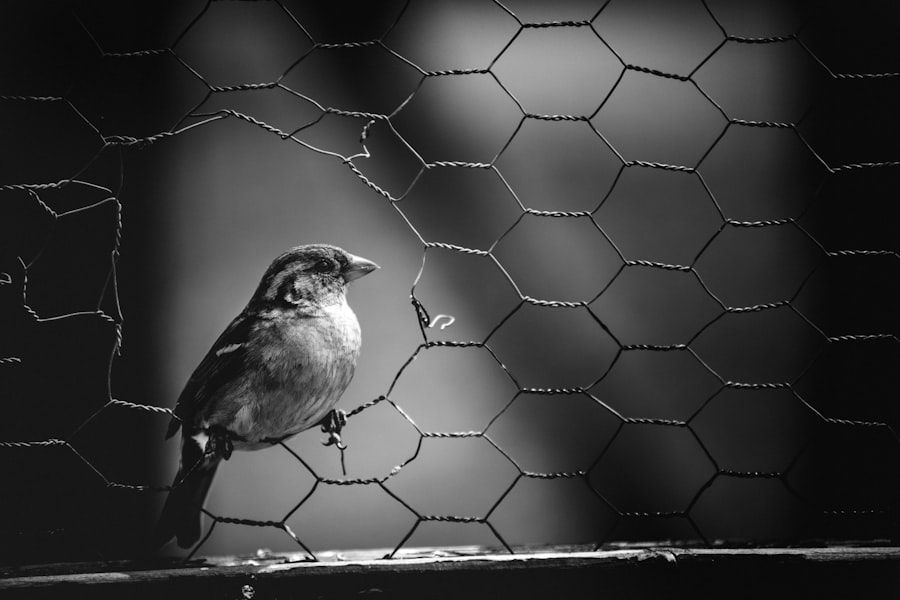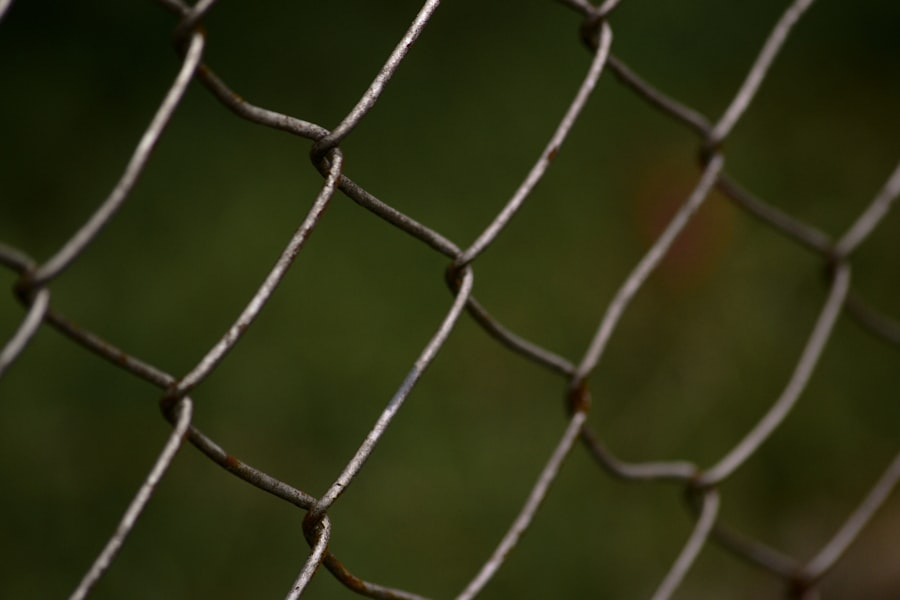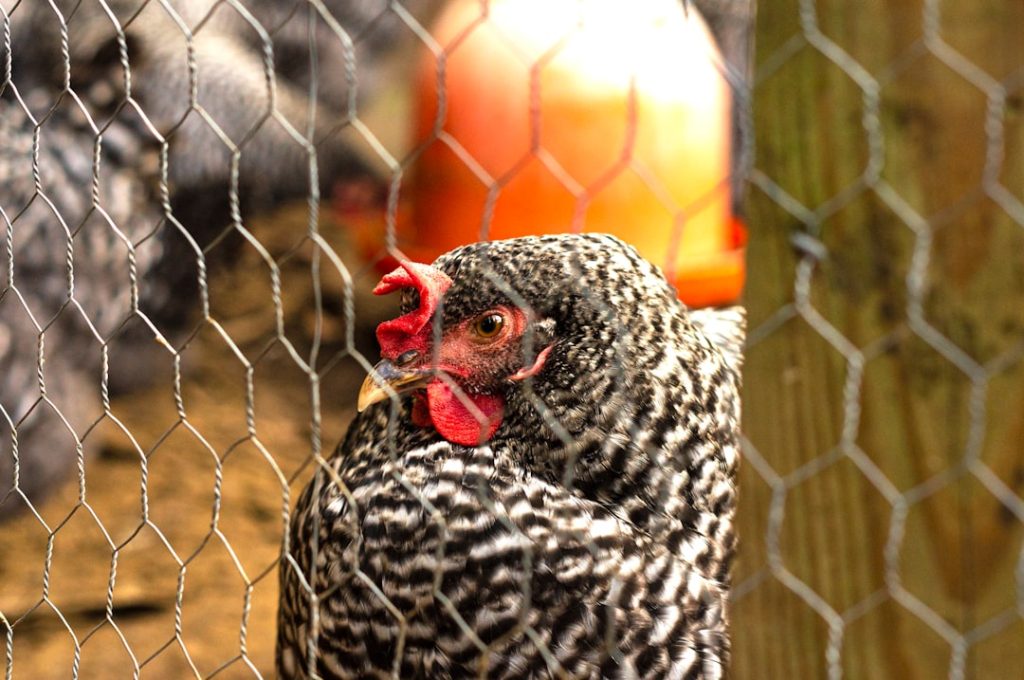Chickens exhibit natural curiosity and opportunistic behavior, often seeking out areas that provide food and shelter. They display territorial tendencies and will defend their space when feeling threatened. Understanding these innate behaviors is essential for effectively deterring chickens from undesired locations.
By recognizing their instincts, one can implement more successful strategies to keep chickens away from unwanted areas. Chickens are highly social animals with a strong flock mentality. They typically follow the lead of dominant flock members, meaning that if one chicken discovers a food source or shelter, the rest of the flock is likely to follow.
This social dynamic can make it challenging to deter chickens from a specific area, as they will persistently return if they perceive it as a valuable resource. Comprehending the social structure of chickens is crucial for developing effective deterrent strategies.
Table of Contents
- 1 Implementing Physical Barriers
- 2 Using Natural Deterrents
- 3 Creating a Distraction
- 4 Properly Storing Food and Waste
- 5 Seeking Professional Help
- 6 Conclusion and Recap
- 7 FAQs
- 7.1 What are some effective ways to keep chickens out of your yard?
- 7.2 Are there any plants that can help keep chickens out of the yard?
- 7.3 Is it legal to keep chickens out of your yard?
- 7.4 What are some natural deterrents for keeping chickens out of the yard?
- 7.5 How can I protect my garden from chickens?
Key Takeaways
- Chickens are naturally curious and will explore their surroundings, so understanding their behavior is key to effectively deterring them.
- Implementing physical barriers such as fences and netting can help keep chickens out of unwanted areas.
- Using natural deterrents like predator urine or citrus scents can help repel chickens from specific areas.
- Creating a distraction, such as a designated feeding area, can help redirect chickens away from unwanted spaces.
- Properly storing food and waste in secure containers can help prevent chickens from being attracted to these areas.
- Seeking professional help from a pest control expert or animal behavior specialist may be necessary for persistent chicken issues.
- Understanding and implementing these strategies can help effectively manage and deter chickens from unwanted areas on your property.
Implementing Physical Barriers
Choosing the Right Physical Barrier
One of the most effective ways to deter chickens from unwanted areas is by implementing physical barriers. This can include installing fences, netting, or other structures that prevent chickens from accessing the area. When choosing a physical barrier, it’s important to consider the size and agility of the chickens, as well as any potential entry points they may exploit.
Maintenance and Effectiveness
Additionally, it’s crucial to ensure that the barrier is secure and properly maintained to prevent chickens from finding a way around it. Another option for implementing physical barriers is to use motion-activated deterrents, such as sprinklers or noise-making devices. These can startle chickens and discourage them from returning to the area.
Limitations and Adjustments
However, it’s important to note that these deterrents may not be effective in all situations, as some chickens may become accustomed to them over time. When using physical barriers, it’s essential to regularly assess their effectiveness and make adjustments as needed to ensure they continue to deter chickens from unwanted areas.
Using Natural Deterrents

In addition to physical barriers, natural deterrents can also be effective in keeping chickens away from unwanted areas. One common natural deterrent is the use of predator decoys, such as fake owls or hawks. These decoys can create the illusion of danger for chickens, causing them to avoid the area.
It’s important to regularly move these decoys around to prevent chickens from becoming accustomed to their presence. Another natural deterrent is the use of strong-smelling plants or herbs, such as lavender or mint, which can repel chickens with their scent. Additionally, spreading citrus peels or vinegar around the area can also deter chickens, as they are sensitive to strong odors.
By using natural deterrents, you can discourage chickens from accessing unwanted areas without causing them harm.
Creating a Distraction
Another effective strategy for deterring chickens is to create a distraction that draws them away from the area you want to protect. This can be done by providing an alternative food source or creating a more appealing environment elsewhere on your property. For example, setting up a designated feeding area with a variety of grains and seeds can entice chickens away from areas where they are not welcome.
Additionally, providing enrichment activities, such as hanging treats or toys for chickens to peck at, can keep them occupied and less likely to seek out unwanted areas. By creating a distraction, you can redirect the attention of chickens and reduce their interest in accessing areas where they may cause damage or disruption.
Properly Storing Food and Waste
One of the most common reasons chickens are drawn to unwanted areas is the presence of food or waste. Properly storing food and waste is essential for deterring chickens and preventing them from accessing these areas. This includes securely storing feed in airtight containers and regularly cleaning up any spilled or leftover food.
Additionally, properly managing compost piles and waste disposal can help reduce the attraction of chickens to these areas. It’s also important to regularly inspect your property for any potential food sources that may be attracting chickens. This can include fallen fruit from trees, uncovered garbage cans, or pet food left outside.
By eliminating these sources of food and waste, you can significantly reduce the likelihood of chickens accessing unwanted areas on your property.
Seeking Professional Help

Expert Insight and Assistance
If you’ve tried various deterrent strategies and are still struggling to keep chickens away from unwanted areas, it may be time to seek professional help. A professional pest control expert or animal behaviorist can provide valuable insight and assistance in developing effective strategies for deterring chickens. They can assess your property and provide personalized recommendations for deterring chickens based on their behavior and habits.
Dealing with Large or Persistent Flocks
Additionally, professional help may be necessary if you’re dealing with a large number of chickens or a particularly persistent flock. In some cases, professional trapping and relocation services may be required to effectively manage the presence of chickens on your property.
Ensuring Humane and Effective Solutions
By seeking professional help, you can ensure that you’re taking the most appropriate and humane measures for deterring chickens from unwanted areas.
Conclusion and Recap
In conclusion, deterring chickens from unwanted areas requires a combination of understanding their behavior, implementing effective strategies, and properly managing food and waste. By recognizing the natural instincts and social dynamics of chickens, you can develop more targeted approaches for keeping them at bay. This may include implementing physical barriers, using natural deterrents, creating distractions, and properly storing food and waste.
It’s important to regularly assess the effectiveness of your deterrent strategies and make adjustments as needed to ensure they continue to deter chickens from unwanted areas. If you are struggling to manage the presence of chickens on your property, seeking professional help may be necessary to develop more effective and humane solutions. By taking proactive measures and being mindful of the behaviors of chickens, you can successfully deter them from accessing areas where they are not welcome.
If you’re looking for more tips on keeping chickens out of your yard, you might want to check out this article on where to put a chicken coop. It offers valuable insights on the best location for your coop to minimize the impact on your yard.
FAQs
What are some effective ways to keep chickens out of your yard?
Some effective ways to keep chickens out of your yard include installing a fence around your property, using chicken wire or netting to cover vulnerable areas, and using natural deterrents such as citrus peels or vinegar.
Are there any plants that can help keep chickens out of the yard?
Yes, there are certain plants that chickens tend to avoid, such as marigolds, lavender, and mint. Planting these around your yard can help deter chickens from entering.
Is it legal to keep chickens out of your yard?
The legality of keeping chickens out of your yard varies depending on local ordinances and regulations. It’s important to check with your local government or homeowners’ association to ensure compliance with any relevant laws or rules.
What are some natural deterrents for keeping chickens out of the yard?
Some natural deterrents for keeping chickens out of the yard include citrus peels, vinegar, cayenne pepper, and garlic. These can be used to create barriers or sprays that chickens find unpleasant.
How can I protect my garden from chickens?
To protect your garden from chickens, you can use fencing, netting, or chicken wire to create barriers around your plants. Additionally, planting chicken-resistant plants and using natural deterrents can help keep chickens away from your garden.
Meet Walter, the feathered-friend fanatic of Florida! Nestled in the sunshine state, Walter struts through life with his feathered companions, clucking his way to happiness. With a coop that’s fancier than a five-star hotel, he’s the Don Juan of the chicken world. When he’s not teaching his hens to do the cha-cha, you’ll find him in a heated debate with his prized rooster, Sir Clucks-a-Lot. Walter’s poultry passion is no yolk; he’s the sunny-side-up guy you never knew you needed in your flock of friends!







